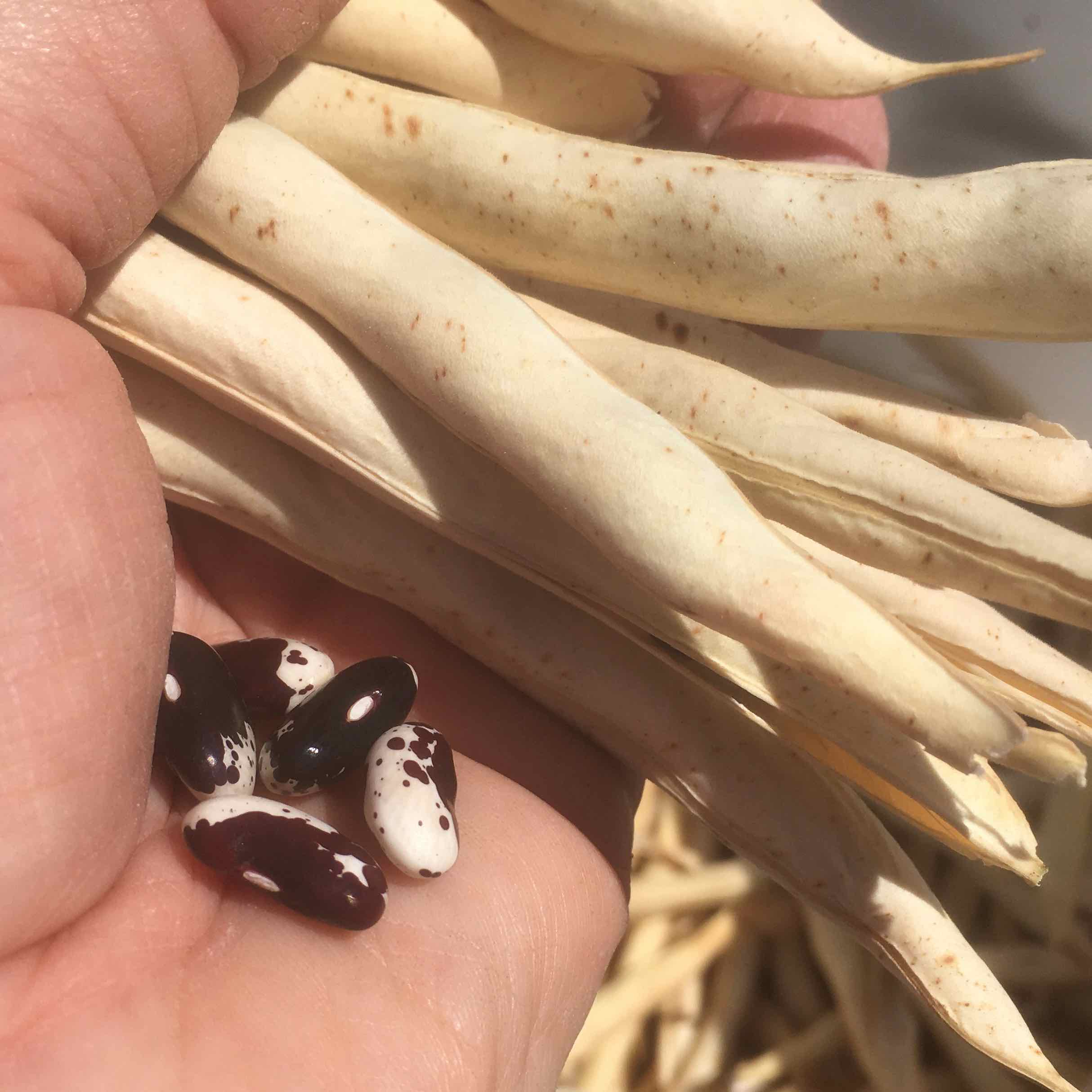Dan and Theresa Podoll have operated Prairie Road Organic Seed from their farm near Fullerton, North Dakota, since 2012. They formerly raised turkeys with Dan’s family; when they lost their processor they had to look at new options. Starting out with 13 varieties, their catalog has grown to well over 100 vegetables, herbs and flowers.
“We started as contract producers with other garden seed companies,” Theresa said. “We were growing fairly sizeable lots of just a few things, such as cucumbers, tomatoes and corn, which varied every year.”
This involved selling large volumes of seed – anywhere from a pound to a thousand pounds – from just a few varieties to a very limited number of customers. Switching to their own retail seed business meant producing smaller volumes of many more varieties for a much greater customer base, and made more sense for the family in terms of risk management.
THERESA PODOLL, PRAIRIE ROAD ORGANIC SEED“Diversity encourages the pollinators and beneficial insects … Diversity begets more diversity. The garden is like a big, wide open canvas, it is so much fun.”
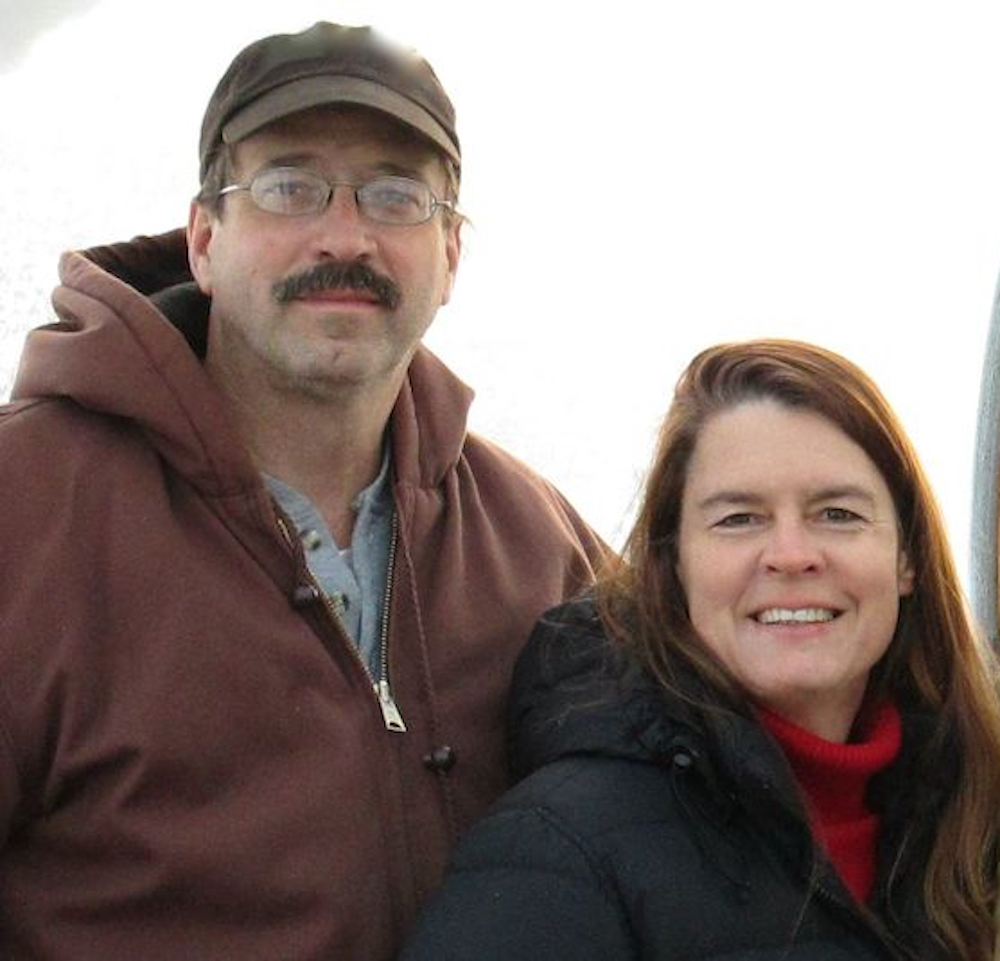
Podolls cherish a deep connection to the seeds they grow. Dan’s brother David has worked as a farm breeder, going through the selection process to develop his own varieties of squash, melons, popcorn and onions. These varieties have been selected and saved from the family garden every year.
Podolls offer several beans that trace their heritage to historic Hidatsa and Arikara gardens in the Dakotas. Oscar Will, who had a seed catalog business in Bismarck, North Dakota befriended Native Americans over 100 years ago and offered many varieties that they generously shared with him in his seed catalog. Will’s seed preservation work was the link between these native crops and Prairie Road.
“Hidatsa Red, Hidatsa Shield, and Arikara yellow beans are very identifiable Native American favorites,” Theresa said. “These seeds have such a story.
“When David couldn’t find what he really wanted he did the selection work on our own varieties. That was at the core of our start in the seed business. The 13 varieties we started with were either bred on the farm or had a deep connection to us, much like the Native American seeds; they are very storied.”
Podolls grow all of the seed they sell, a unique fact for a seed company. Most outsource seeds from other growers in a variety of locations and climate zones.
“When you don’t know where your seed was grown, you don’t know if that seed will grow well in your garden or thrive in your geographical area,” Theresa said. “Our goal is maximizing resilience and making sure our seeds are well adapted to our practices, environment and location, including certified organic practices, dry land farming, and maintaining open pollinated varieties.”
Northern growing conditions can prove challenging for the toughest plants and most dedicated gardeners. Selecting the best seeds from the hardiest, best producing plants year after year on the farm in North Dakota is Podolls’ way of helping other gardeners have the best chance at success possible. At Prairie Road, plants have to survive on whatever Nature dishes out in a given year.
“We’re not out there saving them with some silver bullet fungicide, herbicide or pesticide,” Theresa said. “They have to be strong and grow deep roots to become acclimatized. Our seeds come from plants that are stress tested and resilient. They go through the entire production cycle, from germination to maturity to producing good seed. Plants have an amazing ability to adapt to the environment, and by saving seeds from the ones with the very best traits – productivity, taste and beauty – we get continuous improvement. Every year that we do this the seed gains quality.”
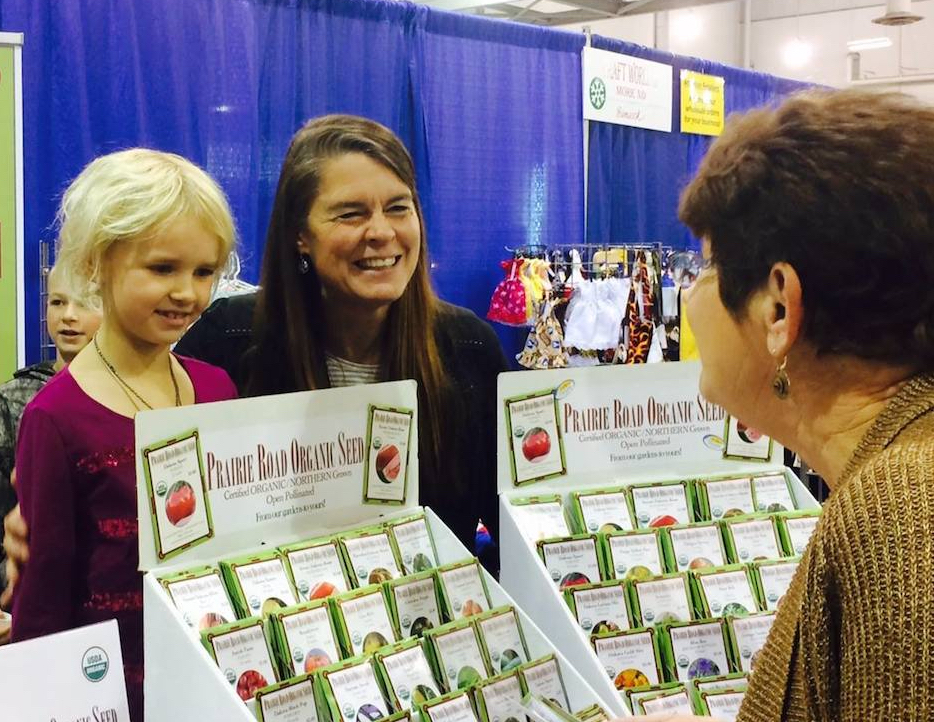
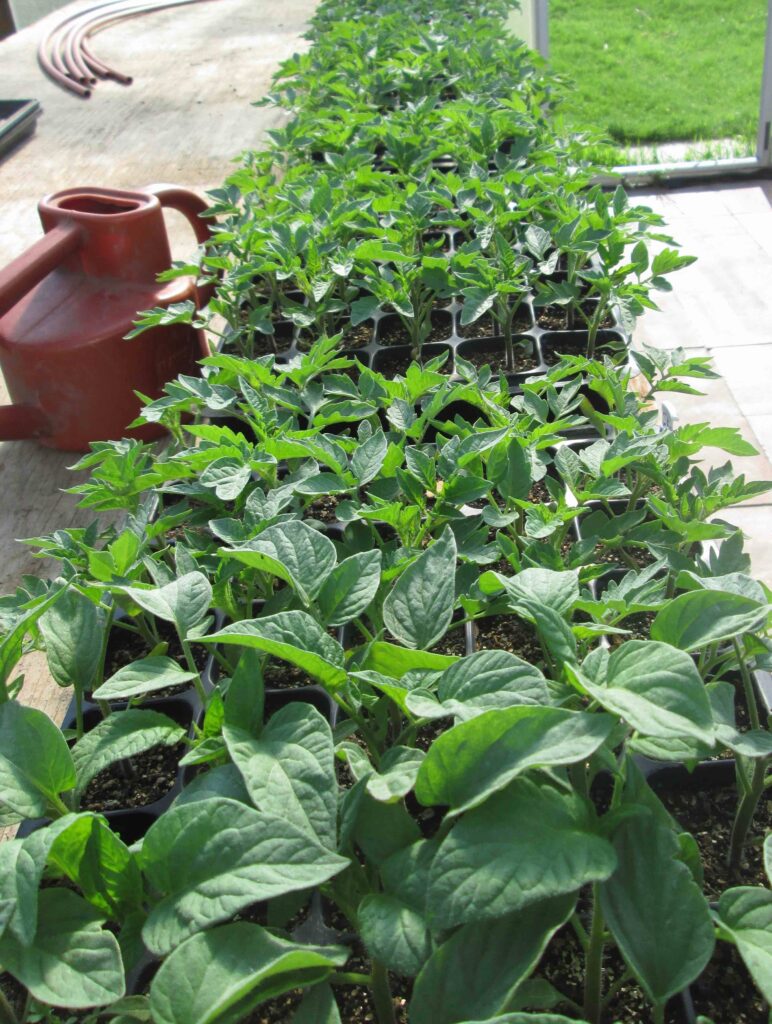
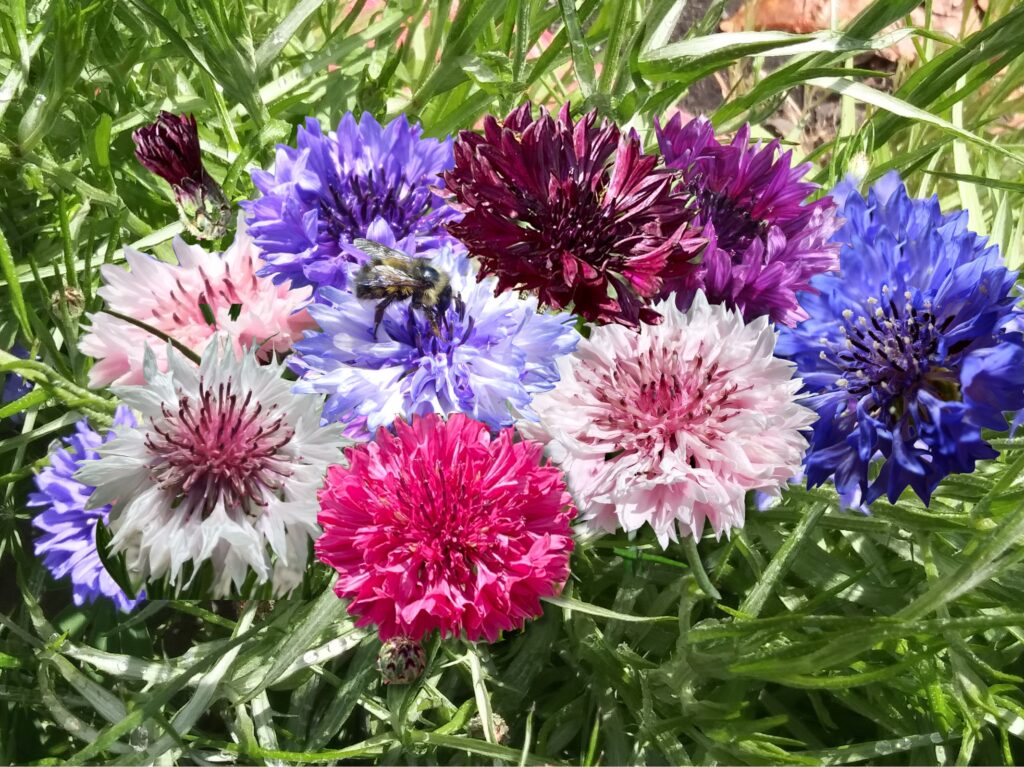
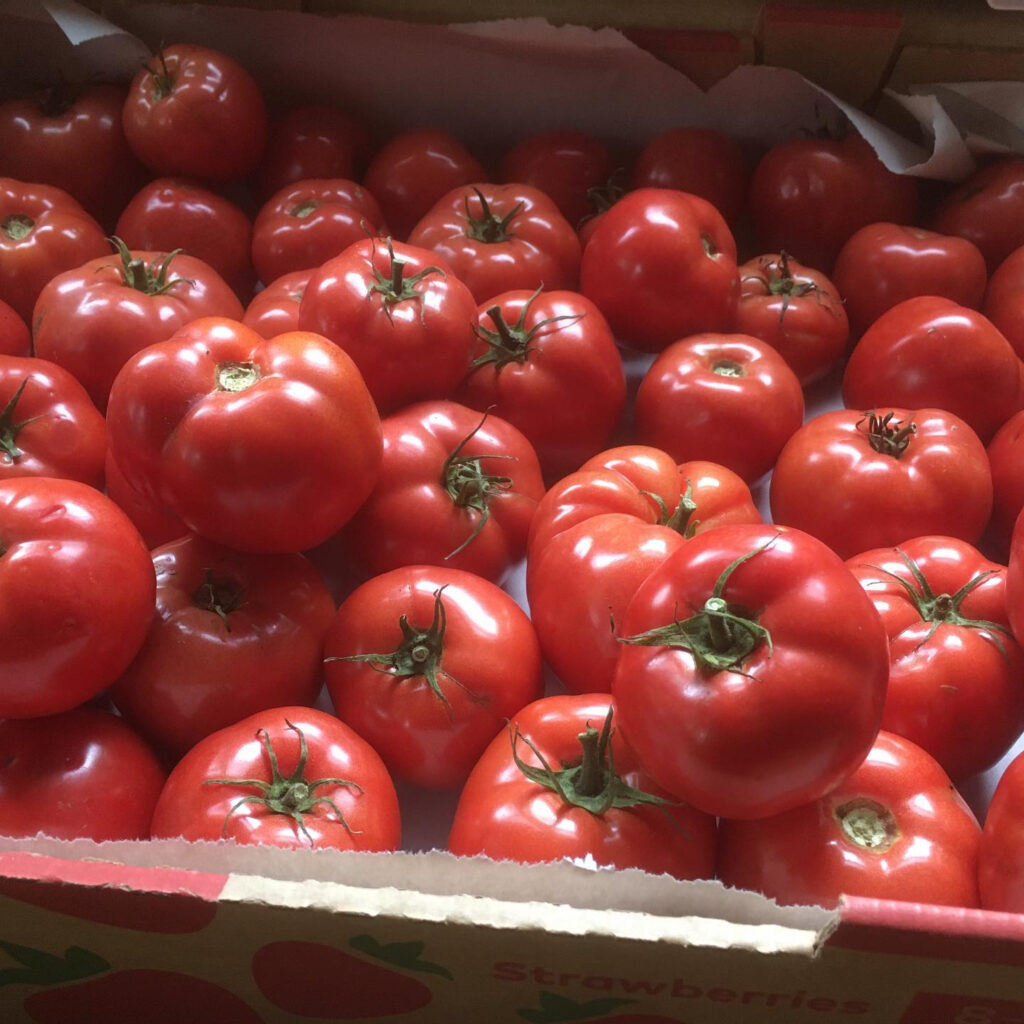
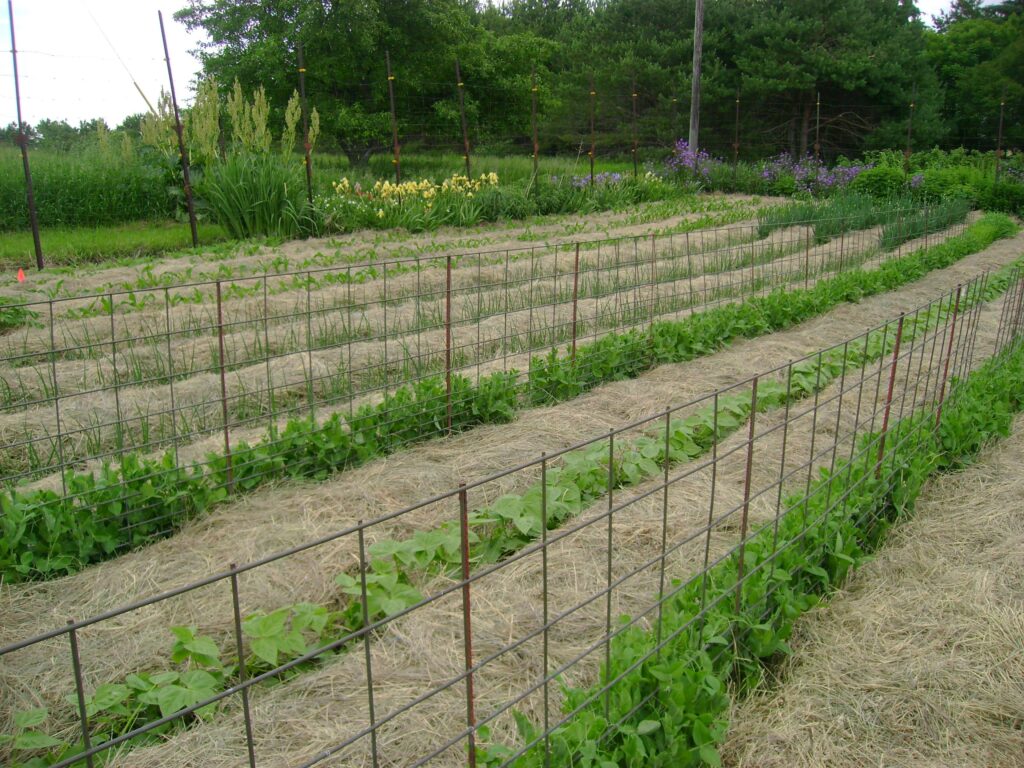
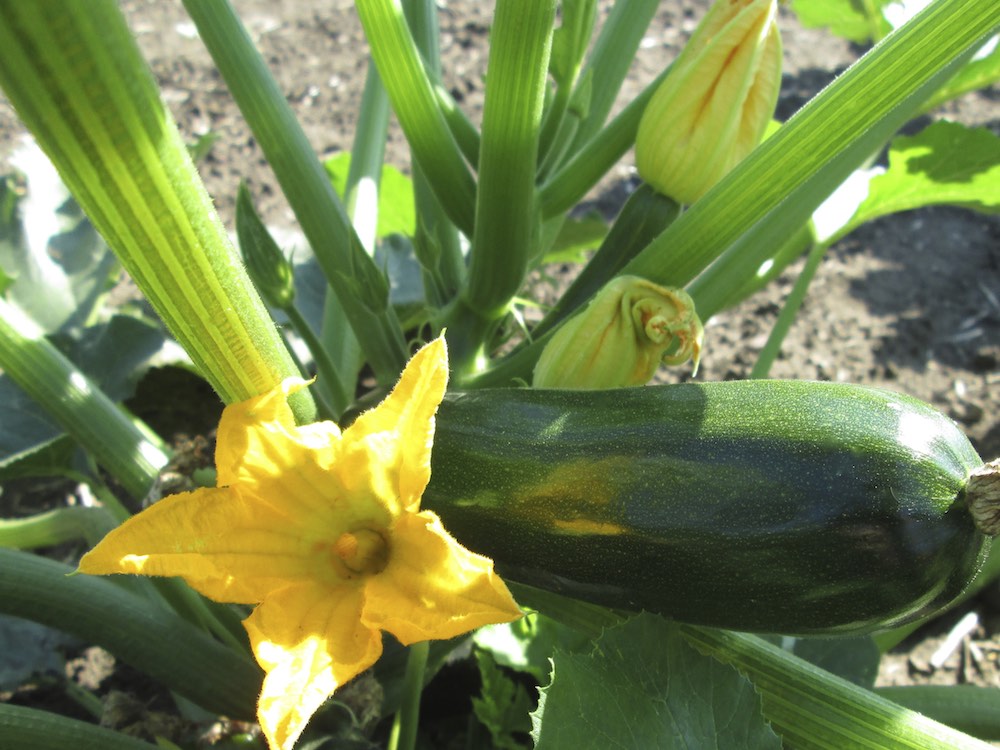
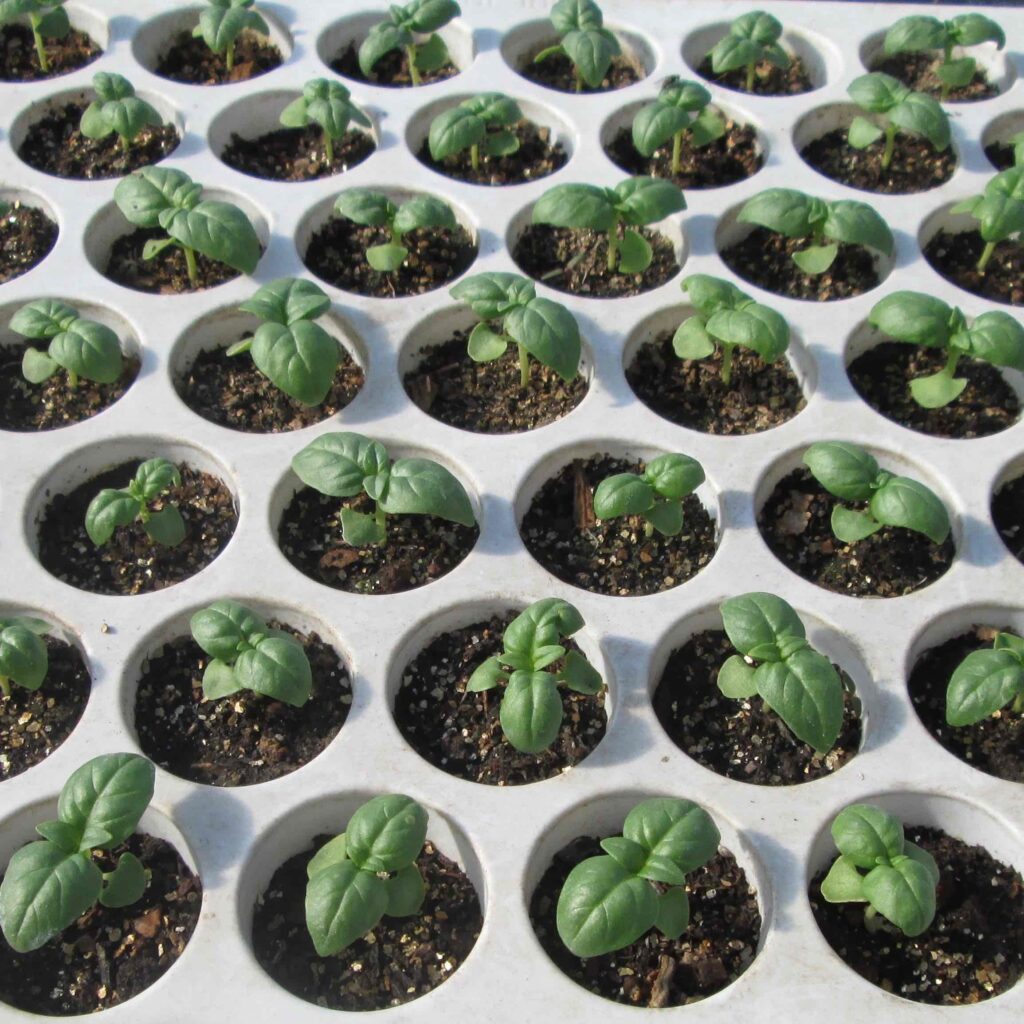
Of their 30 acres, two-thirds is put in a cover crop rotation to build the soil every year. Not planting the same crop in the same area two years in a row and companion plantings are two ways they create diversity. Rows of corn and sorghum are interspersed with other crops for wind protection.
“Diversity encourages the pollinators and beneficial insects. That’s part of the reason we grow flowers and herbs,” she said. “Diversity begets more diversity. The garden is like a big, wide open canvas, it is so much fun.”
A local beekeeper brings hives to the farm, and Theresa said that is a huge gift.
“I’m always keeping an eye out on what is going on with the pollinators. The diversity of bumblebees we see is amazing.”
Theresa says that making it easy for other gardeners to be successful is their mission.
“By far and away, weather is our biggest challenge,” she said. “If we can successfully navigate that, and make our seed more resilient, it will make easier for other gardeners who are navigating challenging times. We like to think we’re a part of transforming the way people approach their food. Our story keeps evolving just like the seeds.”
